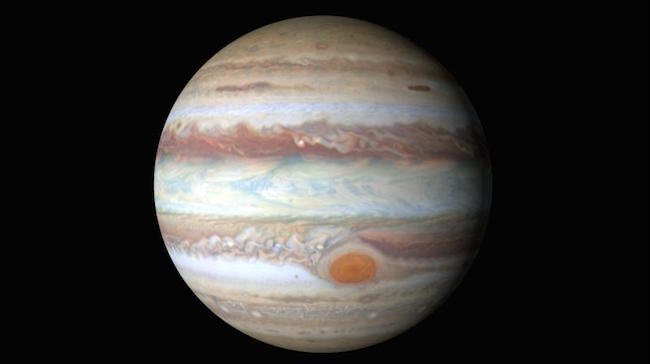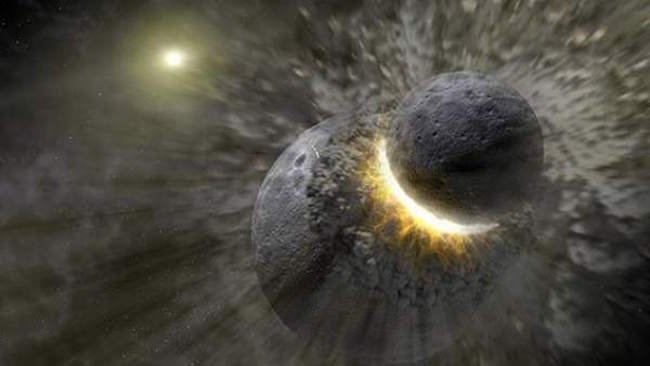Jupiter has now, officialy, 79 moons
It is amazing to say that 400 years have passed since Galileo observed the largest moons of Jupiter, and now in 2018, it's confirmed that Jupiter has at least 79 moons in orbit.

What's interesting about this?
From this group of moons, nine of them orbit in an "external" orbit and they do this in the opposite direction of Jupiter's rotation. Other two moons are orbiting the planet in a closer orbit, in the same direction of Jupiter's rotation and they take a year to complete a round.
What about the last moon?
The last moon, the smallest one, has been called Valetudo. This one is so strange, so much so that scientist confirm that it is the first time a orbit like that is discovered; it is in the same direction of Jupiter but this moon is located between the group of moons that orbit in the opposite direction. This means that the orbit of this moon interferes with the rest, so it is highly probable that there will be a collision between Valetudo and the other moons.

What instrument was used?
The moons were discovered in March 2017 by an equip from the Carnegie Institution for Science, in Washintong. They used a telescope named Víctor M. Blanco, and it is located in Cerro Tololo, Chile.

References
Images from Google Images:
https://www.deccanchronicle.com/science/science/150617/jupiter-is-the-oldest-planet-in-solar-system-study.html
http://ast.noao.edu/facilities/ctio
https://www.20minutos.es/noticia/2160382/0/origen-luna/choque-tierra/planeta/
Information:
https://www.bbc.com/mundo/noticias-44886203
There has to be life somewhere in the universe, with the universe being so big. I mean 79 moons that is a lot of worlds to explore.
I think the same. It is impossible to be alone in the whole universe...
Thanks for your comment.
Regards